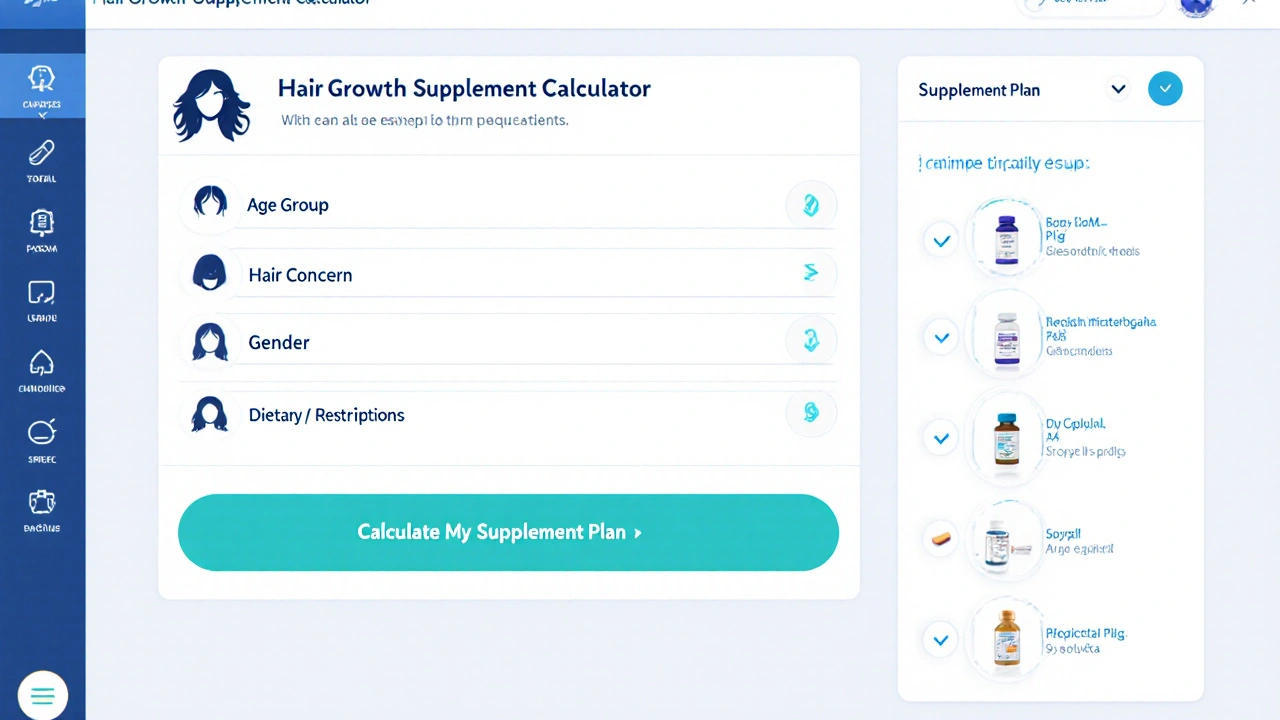Hair Loss Vitamins: What Works and How to Use Them
Did you know that up to 40% of adults notice noticeable thinning by age 30? Most of us reach for a pill or two, hoping a vitamin will fill the gap. The truth is, not every supplement delivers a miracle, but a few key nutrients can actually help strengthen follicles and boost growth.
Top Vitamins Backed by Research
Biotin (Vitamin B7) is the poster child for hair health. It assists keratin production, the protein that makes up each strand. Studies show that people with a biotin deficiency often experience brittle hair that falls out easily. A daily dose of 30–100 µg (roughly the amount in a standard multivitamin) is enough for most; higher doses haven’t shown extra benefit and can cause skin rash.
Vitamin D does more than protect bones. Low vitamin D levels are linked to telogen effluvium, a common type of shedding. Getting 600–800 IU per day—through sunlight, fortified foods, or a supplement—helps keep the scalp environment balanced.
Iron is crucial for oxygen transport to hair follicles. Women, especially those with heavy periods, are prone to iron‑deficiency anemia, which often shows up as diffuse hair loss. A hemoglobin test can confirm the need; if you’re low, 18 mg of elemental iron daily is a typical therapeutic dose, but it should be taken with vitamin C to improve absorption.
Zinc supports cell division and repair. A deficiency can cause patchy hair loss and a dry scalp. The recommended intake is 8 mg for women and 11 mg for men. Zinc supplements are best taken with meals to avoid nausea.
Omega‑3 fatty acids (EPA and DHA) aren’t vitamins, but they deserve a mention. They reduce inflammation around follicles and improve scalp circulation. A serving of fatty fish twice a week or 1,000 mg of fish‑oil capsules can make a noticeable difference.
How to Choose and Use Hair Loss Supplements Safely
First, get a baseline blood test. Knowing your levels of iron, vitamin D, and zinc helps you pick the right product instead of guessing. Look for supplements that list the exact amount of each nutrient—no vague “blend” claims.
Second, pair the pill with a balanced diet. Whole foods like eggs, nuts, leafy greens, and salmon provide the same nutrients in a form your body can use efficiently. Supplements are a boost, not a replacement.
Third, watch for interactions. Biotin can interfere with lab tests for thyroid and hormone levels, while high doses of zinc may lower copper. If you’re on prescription meds, especially blood thinners or thyroid drugs, check with a pharmacist before adding a new vitamin.
Finally, be patient. Hair grows about half an inch per month, so visible results typically appear after 3–6 months of consistent use. If you don’t see improvement after that, re‑evaluate the dosage or consider other treatments like minoxidil or a dermatologist visit.
In short, focus on biotin, vitamin D, iron, zinc, and omega‑3s, test your levels, choose reputable brands, and give the regimen time. With the right approach, you can give your hair the nutritional foundation it needs to look fuller and healthier.

Top Hair Growth Vitamins & Supplements for Thicker Hair in 2025
Discover the most effective vitamins and supplements for hair growth in 2025, with evidence‑backed rankings, dosage tips, safety advice, and a clear buying guide.